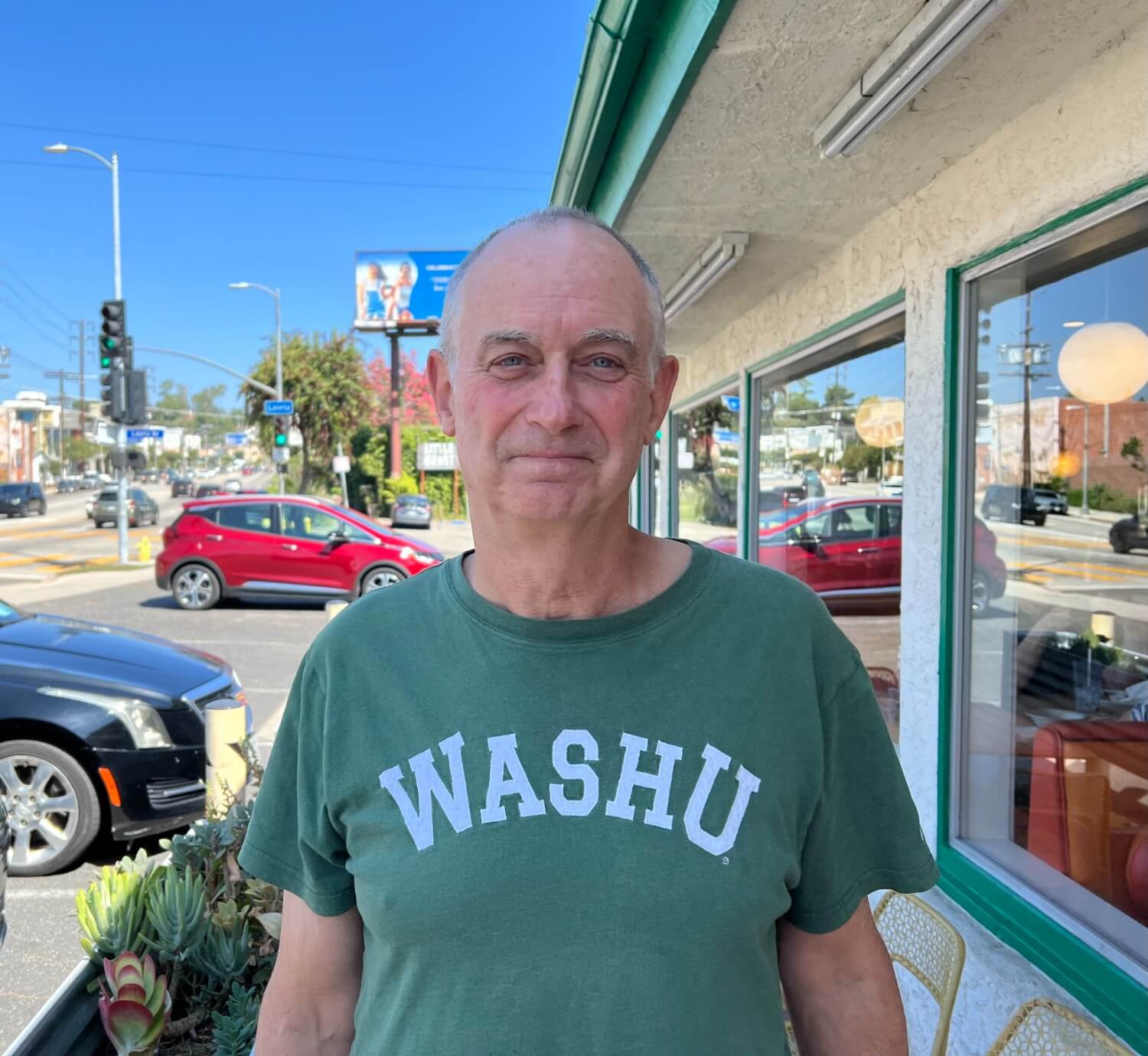
Since May 2, entertainment industry workers have been on strike, effectively shutting down all film and television production based in the United States. The labor unions calling for the strikes are the Writers Guild of America (WGA) and the Screen Actors Guild and American Federation of Television and Radio Artists (SAG-AFTRA). While the strikes have popular support, the shutdown in production and loss of income has had reverberating economic effects within the industry and beyond, forcing many industry workers into financially precarious positions. For Highland Park resident and WGA Strike Captain Adam Toltzis, this event has come at a particularly inopportune time.
“My wife and I just moved from a one-bedroom into a house, and it does not feel like a good time for decorating and things of that nature,” Toltzis said. “You need to be smart, safe and careful.”
The strikes were approved to force the American Motion Picture and Television Producers (AMPTP) into negotiating higher wages, raised residuals for media on streaming platforms and the safeguarding of jobs against potential replacement by artificial intelligence (AI). The outcomes of the negotiations are existential, according to Toltzis.
“We have an opportunity to really dig our heels in and protect the future of writers,” Toltzis said. “I think that people misuse the word existential. When I was in college, I had many existential crises. None of them were, in fact, existential. But I believe that right now, the business of writing, the future of writing is at an existential impasse.”
According to Toltzis, the financial insecurity of the strike is not new; it follows a status quo dominated by streaming services that had been, for many, financially unsustainable.
“There was an era before I was writing where every season was 22 episodes, and you worked almost all year,” Toltzis said. “Now, everything’s eight. Some things are six. Most things are 10. And it ends up being a 20-week job, working half a year if you’re lucky. Which means that you have the other half a year to wait for them to say hopefully there’s a season two — which most likely there isn’t.”
Some entertainment workers have turned towards emergency measures and temporary jobs. Greg Gilday of Eagle Rock is a prop-maker and member of the International Alliance of Theatrical Stage Employees (IATSE) — a labor union representing technicians, artisans, and craftspersons in the entertainment industry. Though the IATSE is unaffiliated with either the WGA or SAG-AFTRA, the lack of film productions has forced him into taking out emergency loans and selling his personal mementos.
“I made almost $1,200 just selling motorcycle magazines… that’s how I’ve been kind of staying afloat; I don’t need 3,000 Star Wars figures anymore, which I collected my whole life… I didn’t have any debt at the beginning of this, and now I’m about $27,000 in the hole,” Gilday said. “I don’t know how I’m going to pay that off in the end. I haven’t done the math for when the money is going to run out yet because I don’t want to know. And people have it way worse than I do.”
To help others in similar situations, Gilday himself organized a garage sale and flea market for entertainment workers to raise funds. The results, according to Gilday, were overwhelming, with double the amount of expected vendors and thousands of shoppers.
“We didn’t charge people for it, and I think that’s why it had such a great response,” Gilday said. “We did have some people that, literally, this was their last chance to make September’s rent.”
But even the duress of financial difficulties has failed to diminish the resolve of the strikers and their supporters, according to Gilday.
“I think people, people inside and out of the industry, are committed,” Gilday said. “[The strike] has gone on so long now that it’s not going to hurt us any more than it has hurt us. We’ve all got our side hustles. I don’t think anybody’s in the mood to capitulate to make it easier on them. Everyone is screwed right now.”
Reports of the AMPTP planning to leverage the financial distress of strikers have, according to Gilday, only bolstered the sentiment of the strike’s importance.
“Waiting until people start missing out on their mortgages and losing their houses… That’s just unreal, that’s un-American,” Gilday said. “There’s an undercurrent in America right now, where totally honest people are just not getting compensated. And when the money is absolutely there, with the revenues of these companies and their executives’ incredible bonuses… It’s unbelievable. Everybody’s committed.”
Many of those struggling have found support via their fellow strikers and labor organizations, according to Mount Washington resident J.T. Allen, a feature writer and WGA strike captain.

“The guild has a strike fund, and they have good terms if you get behind on your payment; they are not the bank,” Allen said. “I’ve made offers for people to stay in my house.”
With their livelihoods and the very survival of the entertainment industry hanging in the balance, the strikers have had little recourse, according to Allen.
“It’s going to destroy the whole business we have here in Los Angeles, this industry that’s been built up over 100 years with this extraordinarily complex ecosystem… There’s all these people with these complex jobs that intersect,” Allen said. “Nobody likes being on strike. We hate it actually… I really do have this brotherhood and sisterhood with these people that I’ve been working with on the strike line. We love the people; we hate being here. Nobody’s going to give up, but I’ll be glad when we see each other at a bar having a beer, and not on the picket line.”
Contact Henry Dorosin at dorosin@oxy.edu
![]()































